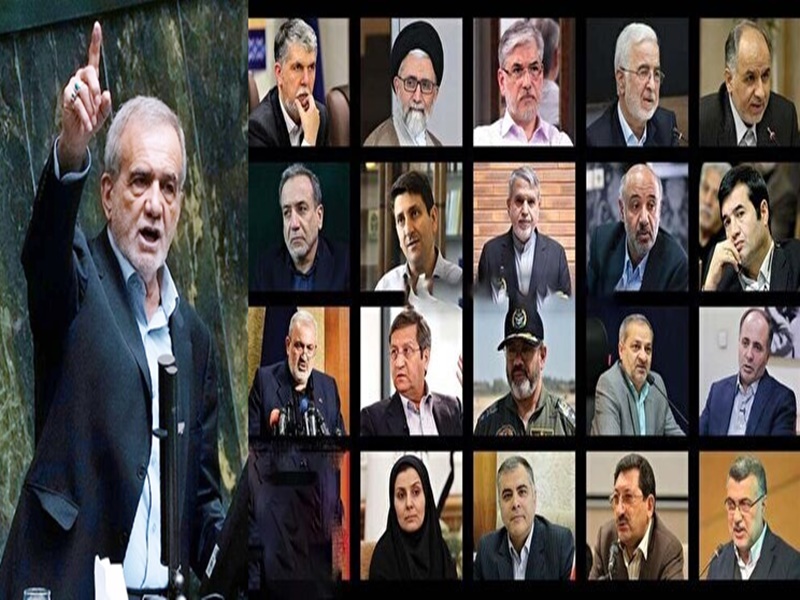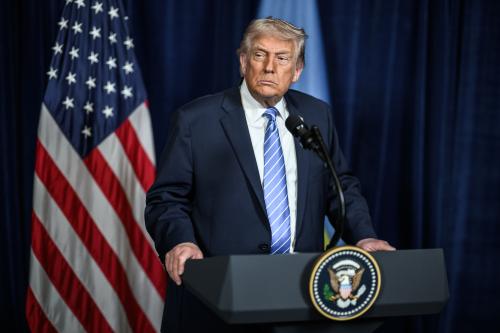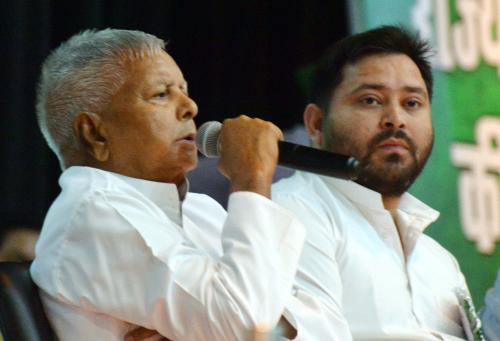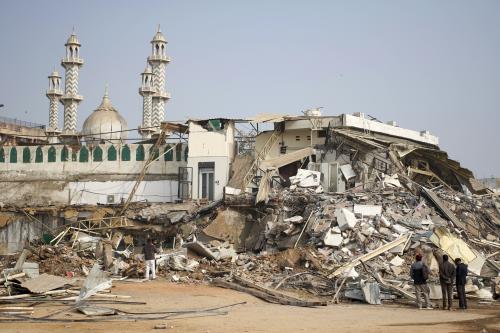By Vikas Datta
After turbulence in his first month in power, with the promised retaliatory action against Israel, the shock resignation of a key supporter, and the push and pull of the complex Iranian governance system, President Masoud Pezeshkian has finally had a moment of relief with all his ministerial nominations receiving Parliamentary approval.
All 19 ministers, including former Deputy Foreign Minister and nuclear talks negotiator Abbas Araqchi as Foreign Minister, former Central Bank Governor Abdolnasser Hemmati as Finance & Economic Affairs Minister, and Deputy Chief of Armed Forces and former Air Force chief, Brigadier General Aziz Nasirzadeh as the Defence Minister, were cleared on Wednesday - the first full clearance to an incoming administration since 2001.
While the approval for late President Ebrahim Raisi's appointee Esmaeil Khatib as Intelligence Minister - a post reserved for clerics since its holders must be mujtahids (high-ranking clerics qualified to independently interpret the Sharia), was expected, Culture and Islamic Guidance Minister Seyyed Abbas Salehi, who had held the same post in President Hasan Rouhani's second administration, also made the cut.
Former IRGC officer and police commander Eskandar Momeni, deemed close to Speaker Mohammad Baqer Qalibaf and considered a relative moderate, will be the new Interior Minister. The post is key in light of Pezeshkian's assurances for looser social control and reining in the 'Morality Police'.
Meanwhile, (post-1979 Islamic Revolution) Iran has got its second woman minister with Farzaneh Sadeq Malvajard, who was the Deputy Minister of Urban Planning and Architecture from January 2019 to July 2023, being approved as the Roads and Urban Development Minister. She got 230 out of 285-odd lawmakers present and voting despite some opposition when her name was read out in Parliament when the ministerial choices were submitted earlier this month.
Sadeq, 48, follows Marzieh Vahid Dastjerdi who was Health and Medical Education Minister in populist President Mahmoud Ahmadinejad's second government (2009-13). Ahmadinejad's other woman candidates Sousan Keshavarz (Education) and Fatemeh Ajorlou (Welfare and Social Security) had, however, failed to secure parliamentary approval.
Pezeshkian submitted a list of his ministerial picks to the Parliament on August 11, almost two weeks after his swearing-in ceremony, though the list did not meet his earlier assurances of diversity and age.
The same day had also seen the resignation of Pezeshkian's Vice President for Strategic Affairs and former Foreign Minister Mohammad Javad Zarif, from the post he was appointed to on August 1.
While Zarif, who had campaigned extensively for Pezeshkian ahead of the presidential elections and was seen as one who brought out the reformist vote for him, had claimed he had quit due to "some forces" using him to put pressure on Pezeshkian, there were rumours that he was not happy at the final choice of ministers.
After Pezeshkian's victory, Zarif had headed a steering committee tasked with shortlisting ministerial candidates, who, as per Pezeshkian, would be younger and be representative of Iranian society, by including members of ethnic and religious minorities as well as women.
However, the cabinet that Pezeshkian unveiled on August 11 had an average age of nearly 60, with only one female candidate, and no Sunni representative.
Zarif, while announcing his resignation, had said 10 of the 19 ministerial nominees were from the lists presented to Pezeshkian by the steering committee, though only three were first choices.
However, supporting Pezeshkian's choices, some elements of the Reformist camp contended that while the cabinet picks were "not ideal", they were more likely to secure the approval of the hardliner/conservative-dominated Parliament.
Though there was speculation that some of the proposed ministers might follow Zarif's lead, it did not happen.
However, Pezeshkian had encountered some obstacles, especially with his reported bid to replace conservative Ali Akbar Ahmadian as the Secretary of the Supreme National Security Council (SNSC) with either former IRGC Navy chief Hossein Alaei, UN envoy Saeid Iravani, and his presidential race rival and former Justice Minister Mostafa Pourmohammadi. However, Supreme Leader Ayatollah Ali Khamenei advised Pezeshkian to keep Ahmadian in the post for some more time.
The approval of new ministers sets the stage for Pezeshkian's administration to begin operating and deal with key international and national challenges.
Above all, is the promise by Supreme Leader Khamenei and the influential Islamic Revolution Guard Corps, which virtually governs most aspects of military diplomacy, to take revenge on Israel for its alleged involvement in the assassination of Hamas politburo chief Ismail Haniyeh in Tehran, a few hours after he attended Pezeshkian's inauguration. However, recent statements indicate that there will be a calibrated, not hasty, response.
The ongoing Gaza conflict, and its regional offshoots, a renewed diplomatic outreach, particularly on Western sanctions, as well as inflation, unemployment and other socio-economic issues are set to be key focus areas for the new government. -- IANS











